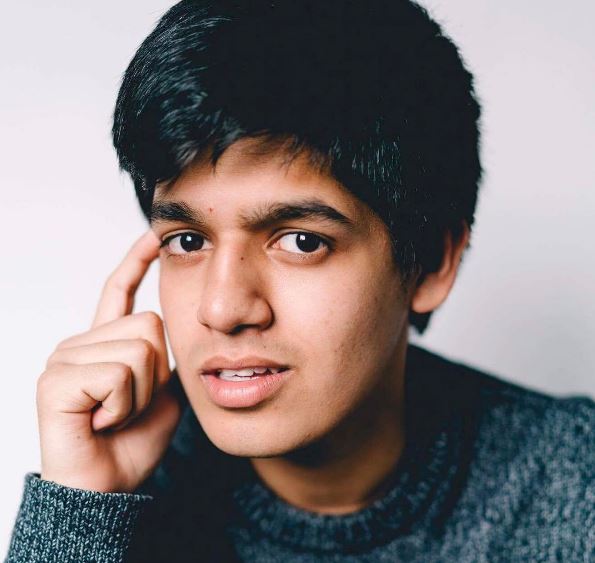“That Boy Who Got Into Stanford”

Courtesy of CNN
May 17, 2017
The Ziad the media knows is not the Ziad I know. The Ziad I know recently came home from Russia after giving his second TEDx talk, his first being in Panama. The Ziad I know had dinner with President Obama and posts pictures with Hillary Clinton. The Ziad I know founded Redefy when he was only 14 years old and was recently featured in Bloomberg Businessweek for his newest project, JÜV Consulting. I know a brilliant, inspiring, and restless young man whom any institution would be lucky to have, because he constantly dedicates himself to improving the world around him. This is what I have seen in my community at PDS. But right now, the world knows a kid who wrote “#BlackLivesMatter” 100 times on a Stanford supplemental essay and got accepted.
To begin, I think it is important to note that the Stanford application requires more supplemental essays than most colleges, and that when Ziad responded to “What matters to you, and why?” he was responding to one prompt, one puzzle piece in the colossal game of college acceptance. The process is in fact a holistic one that does not rely on any one thing. But to me, it comes as no shock that he received that letter of acceptance, just like Princeton, just like Yale. In my eyes, he is the perfect candidate, and I think the PDS community always had a sense that his qualifications would get him this far. But the current spotlight that shines bright on Ziad tends to leave all those things in the dark; it is pinpointed on the risk he took, but it lacks all the foundation, the years of action he has had to promote this message.
Do not get me wrong: I praise Ziad for what he did in the confines of those 250 words. I love it. But not everyone agrees. He has received death threats from white supremacists, been attacked on social media, and generally denounced by throughout the halls of PDS. Though these people may fall blind to their jealousy, I am here to advocate for the power of his statement and to clarify some lingering questions.
There are two arguments I typically hear against Ziad’s response. The first goes as follows: “He didn’t even explain what he wrote.” There is no need for explanation. Black lives matter.
The second is that all these other qualified candidates spent hours crafting the perfect essay, and we should feel bad because he succeeded so “easily.” I cannot help but believe that the thought Ziad put into that essay exceeded any other applicant. He took a huge risk on a school with an acceptance rate that fell below 5% in 2016, so there should be no doubt that he thought twice about what he was doing. Not to mention, he spent years painting a portrait of himself as an astounding social activist. He justified his decision, he demonstrated his passion, and he cultivated the “unapologetic progressive activist” who could write “#BlackLivesMatter” and make it work. The Ziad the world knows only exists because of the Ziad I know.
He said in an interview with CNN, “As I completed my application, my academic work, volunteer activity, extracurricular and activism created a picture, but it became apparent to me as I neared that final question that the picture lacked my voice. It was important to me that the admissions officers literally hear my impatience for justice and the significance of this issue.” As I have learned through my years with Ziad, he has a unique voice, and it would seem almost impossible for him to articulate this voice in the systematic dullness of a college application, but he found a way to express himself, to make his piece of paper shout like he does. And I expect nothing less, because that is the Ziad I know.







